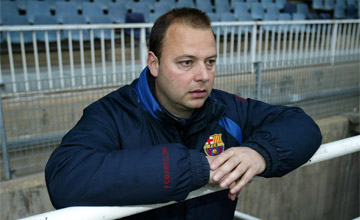By Paul Grech.
Where children are involved, there is a growing reluctance to talk of winners and, particularly, losers. Everyone who takes part gets a trophy, scores are not kept and the friendly nature of games is repeatedly stressed. Everyone’s a winner, or so the slogan goes.
There is a thoroughly justifiable reason for all of this, primarily that of motivating both those who are talented and those who are less so. Self confidence is paramount and everything is done to conserve this. Padding the truth is justifiable if it helps kids and their development.
Yet there is a point where it all becomes counterproductive. There is a point where the kids have to learn that to succeed, just taking part isn’t enough. If you want to be a winner, you have to fight and work hard. And, in order to do so, you must first of all know what it feels like to be a winner; you must taste it.
It is why at a certain age winning football games becomes important. It should never be the ultimate aim, particularly if it comes at the expense of their development. Yet it cannot be ignored.
You would suspect that this is a theory that Rodolfo Borrell, the former Barcelona youth coach Liverpool reserve team manager, subscribes to. Rarely does he give the impression of being satisfied with what those in his charge have done. After wins, he mentions things that could have been done better whilst defeats frequently tend to generate biting assessments. When his reserves team lost heavily to Sporting Lisbon and Ajax, he could barely talk such was his anger and disappointment.
This post is for Subscribers only.
[ttt-subscribe-article]
Paul is the author of Blueprint for Football (http://www.blueprintforfootball.com) a blog dedicated to analysing youth football and the essential elements for success. He also has his own Liverpool blog over at A Liverpool Thing (http://aliverpoolthing.com).
